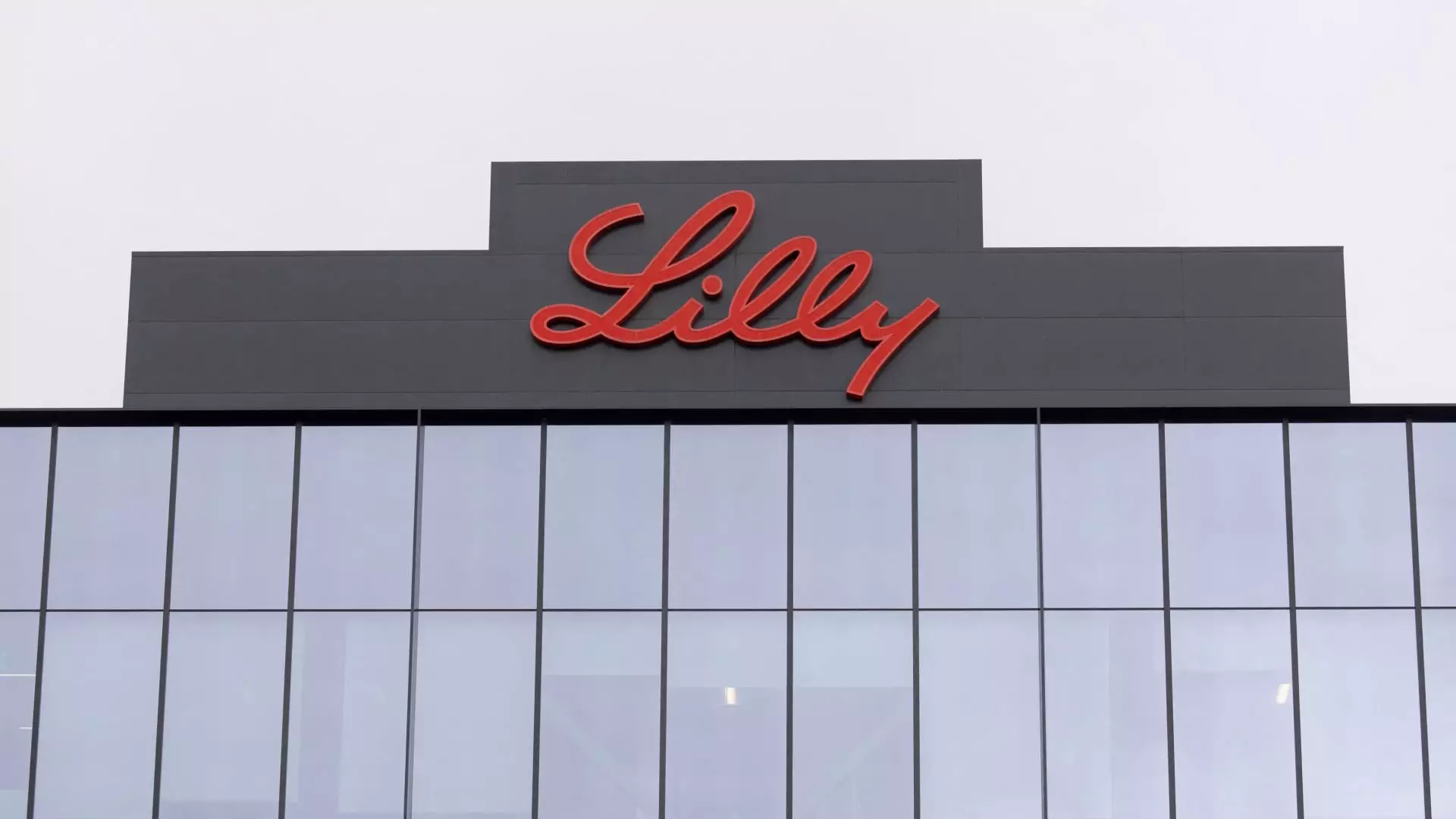Market movements can often be volatile and unpredictable, as demonstrated by several companies making headlines during midday trading. This article dives into the factors influencing stock prices for notable industry players, offering insights into their performance against a backdrop of rising and falling expectations.
Eli Lilly, a major player in the pharmaceuticals sector, saw a dramatic decline in its stock, plummeting over 7%. This downturn was triggered by the company’s revised expectations regarding demand for its diabetes and weight loss drugs. Originally projecting full-year 2024 revenues between $45.4 billion to $46 billion, Lilly has now adjusted this estimate downward to approximately $45 billion. This revision not only reflects potential challenges in the market but also raises questions about the long-term sustainability of their revenue growth. The disparity between market expectations and actual performance can shake investor confidence and significantly impact stock valuation.
In the aerospace industry, Boeing experienced a notable stock decline of more than 2%. This drop correlates with the release of the company’s 2024 airplane delivery figures, which fell significantly—about a third less than the previous year, totaling over 348 deliveries. Comparatively, Airbus outperformed with 766 deliveries last year. This widening gap not only indicates potential competitive disadvantages for Boeing but may also have repercussions on its market share and operational health in the future. The aviation sector’s recovery from the pandemic remains inconsistent, and such disappointing numbers could exacerbate investor concerns over Boeing’s operational capacity.
Conversely, Applied Digital showcased resilience in a challenging market, with its shares rising over 6%. This uptick followed a strategic announcement that Macquarie investment group has agreed to inject up to $5 billion into Applied Digital’s artificial intelligence data centers. This partnership not only cements investor confidence but also provides a substantial capital influx to enhance their high-performance computing segment. As the demand for AI technology rises, Applied Digital is poised to capitalize on this trend, making it an attractive player for investors looking for growth in tech sectors.
In a somewhat surprising twist, Hesai, a Chinese auto supplier, saw an impressive stock increase of 8% due to a positive upgrade by Goldman Sachs, which shifted its rating from neutral to buy. Analyst Tina Hou highlighted that the market has underestimated the potential of their new product cycle, which could offer high returns as the automotive industry continues to evolve. This upgrade reflects broader market sentiment, as investors increasingly recognize the value of innovation within traditional sectors.
On the downside, Signet Jewelers experienced a staggering 26% drop in stock price after the company lowered its guidance for fourth-quarter performance. Reflecting a broader consumer trend, weak holiday sales have prompted consumers to opt for lower-priced options, leading to disappointing financial forecasts. This indicates a shift in consumer behavior that luxury retailers like Signet may need to navigate carefully if they wish to remain resilient in a challenging retail environment.
On a more positive note, KB Home saw its stock price increase by 3%, buoyed by a fourth-quarter earnings report that surpassed expectations. Reporting earnings per share of $2.52 against an anticipated $2.45, as well as revenue surpassing analyst forecasts, KB Home illustrates the potential for continued growth within the real estate market. Strong earnings can often breed confidence among investors, reflecting overall market strength in certain sectors, even when others falter.
In a remarkable market development, H & E Equipment Services’ stock surged over 105% after United Rentals announced its intention to acquire the company for $92 per share in cash. This significant acquisition, valued at approximately $4.8 billion, underscores the confidence that larger firms are willing to invest in equipment services, suggesting a bullish outlook for the sector as economic conditions improve. United Rentals also saw a modest rise of 3%, likely benefiting from this strategic acquisition alignment, indicating investor optimism about industry consolidation.
Instacart gained over 1% following a rating upgrade from BTIG, which emphasized its leadership position in the grocery delivery sector. This growth reflects the evolving consumer preferences for convenience amidst busy lifestyles. Meanwhile, Celanese, a chemical manufacturer, jumped 5% after a rare double upgrade from Bank of America. The firm highlighted Celanese’s favorable valuation and anticipated demand recovery for their diverse product range.
The midday trading session serves as a microcosm of broader market dynamics, revealing the fluctuating fortunes of key companies across various sectors. From unexpected downturns to remarkable growth spikes, these movements highlight the intricate interplay of market expectations, strategic investments, and shifting consumer behavior, reminding investors to remain vigilant and adaptable.

